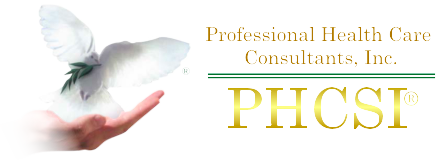Fore more inquiries, please call
- 888-534-8082 / 714-554-0878 / 949-681-8383
Fore more inquiries, please call
 Emphysema is a disease of the lungs in which some of the walls which separate the thin walled air sacs from each other have broken down, creating larger than normal air spaces. This condition reduces the efficiency of the lung in exchanging oxygen and carbon dioxide.
Emphysema is a disease of the lungs in which some of the walls which separate the thin walled air sacs from each other have broken down, creating larger than normal air spaces. This condition reduces the efficiency of the lung in exchanging oxygen and carbon dioxide.
Frequent infections and irritation within the lung damage the air sacs where oxygen and carbon dioxide are exchanged. Oxygen gets into the sacs but the carbon dioxide has difficulty getting out, thus making it difficult to exhale and to rid the body of waste products. The body slowly begins to build a tolerance for a lower level of oxygen and higher level of carbon dioxide as all body cells are impacted by this imbalance.
Emphysema may develop from prolonged interference to the movement of air through the smaller air passages (as in chronic bronchitis or asthma) or from a condition which has increased the lung’s fibrous tissue (as in pneumoconiosis). In many cases emphysema is associated with chronic bronchitis. The incidence of emphysema has increased greatly in years, occurring much more commonly among smokers. Emphysema usually occurs after the age of forty, and its mortality rate increases with the age of victims. The disease is four times common in men as in women. This condition ranks in the ten top causes of death in the US and is a major contributor to the disability roles.
Emphysema develops so gradually that until it reaches a critical level, most people ignore the changes they are experiencing. Emphysema symptoms include difficult breathing on exertion, wheezing when air is exhaled, severe cough with the expectoration of foul mucus, and a gradual change in the shape of the chest caused by the excessive activity of the muscles concerned with breathing (so-called “barrel chest”).
Diagnosis
A thorough medical history and physical examination starts the diagnostic process. The health care provider, while doing the physical exam can hear the difficulty of the air exchange. Tests are needed to confirm the physician’s suspicions. The tests include:
Emphysema is a progressive disease with an eventually fatal outcome since the tissue changes cannot be reversed. However, by following a health-promoting plan of living, the patient may be relatively comfortable and his life prolonged.
WHAT TO DO?
This information was compiled from the Modern Medical Guide and Life Ledger – the peace of mind and guidance you need.

Professional Health Care Consultants, Inc., also known as Professional Health Care Services, is a family-owned caregiver referral and consulting business. We specialize in managing and developing small businesses in the Home-Care Industry for non-medical, custodial and around-the-clock care. We offer caregivers, families and their loved ones all different services and several options that are affordable for them.
PHCSI and “Your Loved Ones are Our Loved Ones” are Registered Trademarks assigned to Professional Health Care Consultants, Inc.
COPYRIGHTS © 2020 Professional Health Care Services. All Rights Reserved.